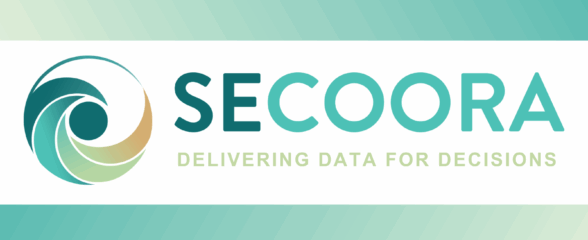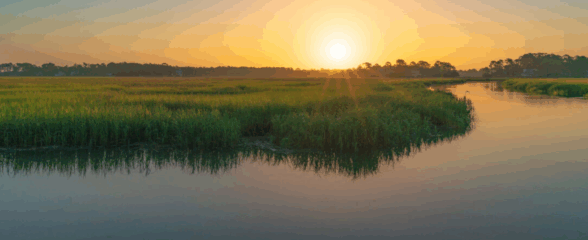South Carolina, January 11, 2016: From North Carolina to Florida,ocean acidification (OA) impacts in the Southeast US are largely unknown. Ocean acidification is a term that describes the change in the chemistry of ocean waters, largely due to increased carbon from the atmosphere entering the ocean. These changes in ocean and coastal water chemistry can affect the entire marine ecosystem. The complex physical and biogeochemical interactions of marine ecosystems present a challenge to understanding the influences of acidification at local and regional scales.
January 12 and 13, the SOCAN (the Southeast Ocean and Coastal Acidification Network) Steering Committee is holding a meeting at the College of Charleston to discuss what OA means for the region.
"Ocean chemistry is changing at an alarming rate. This first SOCAN workshop is a critical step to assessing the current state of OA and its potential environmental and economic impacts for the Southeast,” stated Debra Hernandez, the Executive Director of SECOORA.
“SOCAN consists of regional stakeholders and serves as a forum for discussing the most recent scientific, technical and socioeconomic information relevant to the organisms that could potentially be impacted by ocean and coastal acidification; identifies knowledge gaps; identifies priorities for monitoring and research; and responds to stakeholder needs. Similar ocean acidification networks are in existence in other regions throughout the country and have proven to be successful mechanisms for catalyzing unique partnerships and leveraging assets in times of constrained budgetary resources,” said Paula Keener, with the NOAA Ocean Exploration and Research Program and SOCAN Steering Committee Member.
Throughout 2015, SOCAN hosted 20 OA-focused webinars (www.secoora.org/socan_webinar) to document what is known, what isn’t, and what research in other locales can be applied to better understand OA effects here.
Synthesizing the webinars and participating in breakout sessions, the Steering Committee will work together during the meeting to develop and publish a state-of-the-science document on OA in the Southeast. They will be focusing on three objectives:
- Summarize key findings, prioritize research needs, and identify research and laboratory capabilities that could address OA-related research questions;
- Identify why the Southeast region is unique and its vulnerabilities to potential impacts of OA; and
- Summarize why ocean acidification matters to stakeholders.
To find out more, click here to access the meeting agenda or please visit the SOCAN webpage www.secoora.org/socan.
Meeting Sponsors
SECOORA
Sunburst Sensors
NOAA OAP
About Ocean Acidification
Similar to a sponge, the ocean absorbs the excess carbon dioxide in the atmosphere. This causes the ocean tobecome more acidic (pH levels lower), resulting in chemical changes in the carbonate system. The increase in acidity damages the basic building blocks of life needed by oysters, corals and other animals to make their carbonate shells and skeletons.
About SOCAN
Formed in February 2015, Southeast Ocean and Coastal Acidification Network (SOCAN) is an interdisciplinary network of scientists, resource managers, business, non-profit, industry and government entities dedicated to supporting and encouraging discussions on ocean and coastal acidification in the Southeast region from North Carolina to Florida.
With the Southeast Coastal Ocean Observing Regional Association and NOAA Ocean Acidification Program as supporting structures, SOCAN will:
- synthesize and disseminate the most recent scientific, technical and socioeconomic information relevant to species and ecosystems that could be affected by acidification;
- identify knowledge gaps;
- set regional priorities for monitoring and research;
- collaborate in the development of a Southeast regional acidification monitoring network;
- encourage and support scientific research collaborations and data sharing; and
- respond to stakeholder needs, as appropriate.
Related news

SECOORA Funding Opportunity Announcement: Letters of Intent Solicitation
SECOORA will submit a coordinated regional proposal in response to the anticipated FY 2026 Implementation of the U.S. Integrated Ocean Observing System (IOOS) funding opportunity. Letters of Intent to be considered for inclusion in SECOORA’s full proposal are due September 9, 2025.

SECOORA Hosts the First Surface Elevation Table (SET) Community of Practice Virtual Workshop
The SECOORA SET Workshop was virtual on July 17, 2025. More than 50 Community of Practice members and stakeholders joined this collaborative workshop to discuss SET monitoring, coastal resilience, and data-driven decision making in the Southeast.

The Sounds of the Sound: Connecting the Port Royal Sound Community with What’s in the Water
Port Royal Sound in Beaufort, South Carolina is a thriving haven for animals, plants, and people. Research focused on listening to the animals that live in the Sound – specifically the resident dolphins – connects the community with the underwater world without having to go swimming.